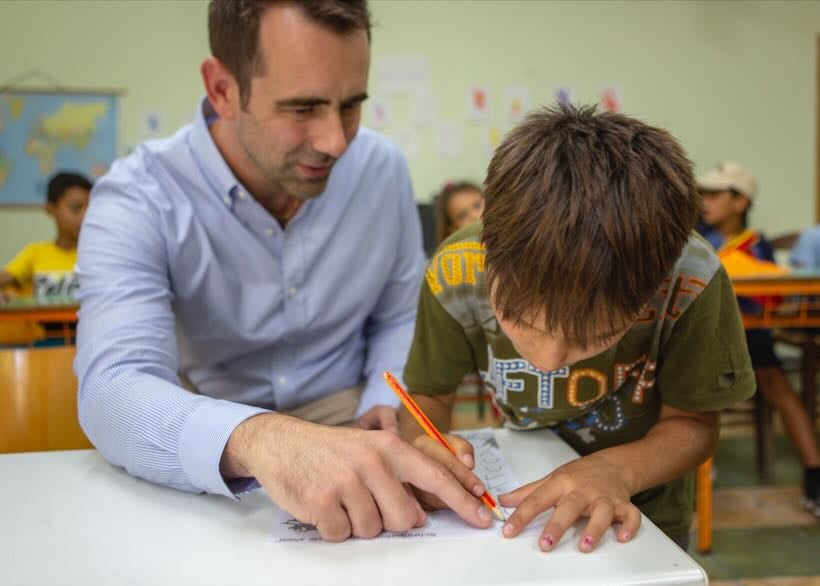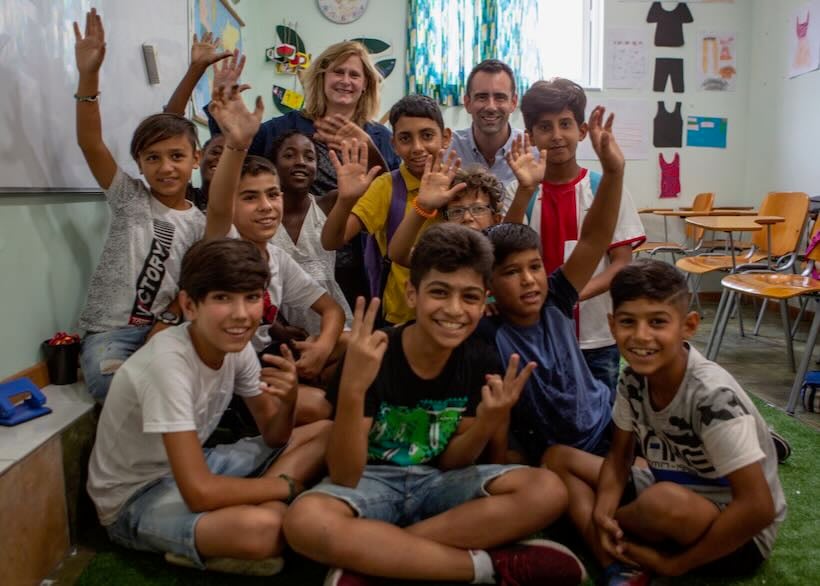Over the past year, the concept and practice of ESG—the environmental, social, and governance goals that companies now widely adopt—has become increasingly contentious. Critics from the right have charged that ESG is a cover for “woke” corporations; critics from the left have charged that ESG is token activism or greenwashing.
Yet, the central insight of ESG remains fundamentally true: Businesses, like all actors in society, need to play a positive role in solving shared challenges. They have a special responsibility and opportunity in critical areas that directly touch their operations, like education. Indeed, by focusing on education in ESG investments, businesses can advance their own interests and credibility while driving widespread, concrete progress, unlocking a broader set of social and economic as well as business goals.

How Education Bolsters Bottom Lines
Education is critical to both a company’s long-term resilience and growth and to broader social outcomes. Consider the benefits of early childhood education for both companies and society. For companies facing material risks like workforce retention, tight talent supply, and pay inequality, education initiatives offer a concrete solution. Instituting early childhood care centers for employees has direct business benefits, including increased retention and helping bridge the gender gap exacerbated by the Covid pandemic.
More than that, each dollar invested in early childhood education yields up to a $17 return to society in the US alone. It’s a strategy that promises reduced inequality, diminished incarceration rates, and more-stable communities.
Investing in education for both children and employees offers companies an opportunity to align their values with societal empowerment. That is why companies like Google, Accenture, and Schneider Electric are already taking the lead by advancing solutions like those outlined in the ESG + Education Playbook—a tool that enables businesses to support education and achieve improved outcomes—recently published by the Global Business Coalition for Education.
Fostering Education, Even in Wartime
Yet, global challenges often eclipse education. From the war in Ukraine, to increased migration from climate change, the collateral damage of global crises often includes the truncation—or complete cessation—of childhood education.
In the face of such immense crises, the immediate humanitarian response—understandably so—prioritizes the basics: health, food, and shelter. But by placing education on the back burner and framing it as a secondary concern or even an expendable luxury, we are undermining the very future we’re trying to safeguard. Education, especially in crises, represents more than structured learning: It signals resilience, and a commitment to a brighter, more-informed tomorrow. In an age of discord, the promise of education offers hope.


I recently returned from Ukraine with Sarah Brown, executive chair of the business coalition, where we met with President Volodymyr Zelenskyy to discuss a new partnership between my organization, Theirworld; the business community; and the Government of Ukraine to help transform education and development for preschool-aged children and adolescents alike through national preschool initiatives and accelerated education in STEM (science, technology, engineering, and math). Even in the most challenging of times, the government of Ukraine has recognized the importance of early childhood education and taken tangible action to safeguard it—and the need to invest in skills to rebuild its country.
Funding Emergency Efforts
Globally, businesses can seize similar opportunities by championing education and setting a course for enduring positive change. Our Global Disaster Relief and Education Response Fund is an example of the way forward. The fund offers businesses immediate access to vital information and pre-established partnerships, enabling them to mobilize and allocate funds within 30 days following an emergency to support educational initiatives. It also collaborates with businesses proactively to define their priorities—ensuring prompt and aligned actions during crises. It assists them in making timely contributions to relief endeavors and ensures diligent assessment of partners. Companies like HP and Microsoft have been leading champions of harnessing education in emergency responses to drive internal ESG and social impact indicators.
For corporations, institutions, and civil society engaged in the ESG discourse, we present an unambiguous call to action for organizations to rebuild their commitments to social responsibility on the bedrock of education.
It’s time for businesses to embrace education—not as a token gesture, but as a pragmatic strategy rooted in genuine, measurable impact. After all, education is a bridge that spans the divide between today’s challenges and tomorrow’s triumphs. The question remains: Will businesses rally around it?



